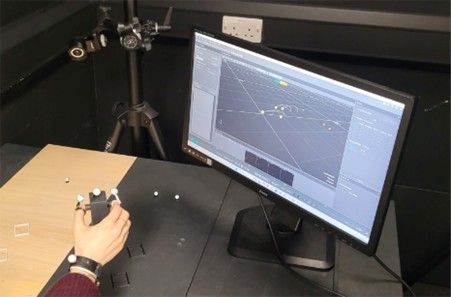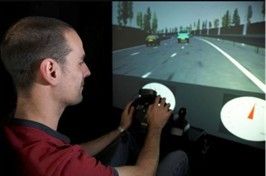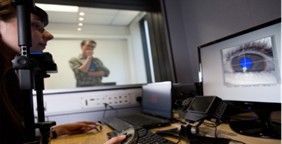Applied Perception Experimental Psychology Research Group (APEx)
The APEx research group is dedicated to exploring how human perception interacts with cognition and motor function in real-world scenarios. Our interdisciplinary research spans vision science, auditory perception, and human-technology interactions, integrating experimental psychology, neuroscience, behavioural techniques (EEG, eye tracking, motion capture) and computational modelling. We manage the Driving Lab, Multisensory Unit (with VR capabilities) and Motion Capture Lab (Optitrack) within Psychology. Key projects investigate the impact of vision loss on mobility and cognitive function, human-vehicle interactions for enhanced road safety, and the cognitive processes underlying speech perception.
Key funders of our research include the EPSRC, ESRC, Leverhulme Trust and the Bial Foundation.

Research Projects
Exploring how vision loss affects motor skills, cognitive function, and quality of life
Dr Holly Brown, Dr Carlo Campagnoli, Dr Rachel Coats
Understanding the consequences of vision loss (e.g. age-related macular degeneration and cataracts) beyond the eye is important in our ageing population. Degraded vision can detrimentally affect activities of daily living, cognitive function, and ultimately quality of life. Current example projects include 1) Exploring relationships between clinical vision measures, physical and lifestyle activity, and cognitive function to help identify patient needs, develop effective interventions, and advance research. 2) Determining the efficacy of second-eye cataract surgery by examining the effects of vision loss and lens replacement surgery on vision and motor function. Current surgical restrictions are often based on arbitrary visual thresholds, but we hope our data will help inform these decisions to make them more objective.

Enhancing Road Safety and Human-Vehicle Interactions: Insights from Cognitive and Neuroscientific Research
Professor Jac Billington and Professor Richard Wilkie
Our research focusses on understanding and improving human interactions with the environment, particularly in transportation systems. Projects include understanding how humans interact with automated vehicles (AVs), including how drivers transition between manual and AV control (EPSRC, TRANSITION: Transport safety in automated vehicles) and using neuroscientific approaches to inform the development of computational models of road-user behaviour (EPSRC, COMMOTIONS) as part of ongoing collaborations with The Institute for Transport Studies. We are also dedicated to ensuring the safety of vulnerable road users, such as pedestrians and cyclists, by developing neuroscientifically informed strategies to enhance their visibility and promote safer interactions on the road (Leverhulme, To see or not to see: Camouflage and human process of detection).

Cognitive listening: Understanding speech perception in adverse conditions
Dr Ronan McGarrigle
This research is focussed on how our auditory and cognitive systems interact to promote successful everyday listening. Projects include understanding the role of cognition in how humans split their auditory attention (ESRC funded collaboration with University of York; Split listening: A cognitive investigation of speech perception in adverse conditions). Much of this work uses pupillometry (an eye-tracking technique) to measure moment-to-moment changes in cognitive resource allocation during listening, and is a continuation of previous ESRC-funded work on effortful listening (What the eyes can reveal about the ageing listening brain). Ultimately, this research aims to improve the lives of those experiencing communication difficulties, including individuals with a sensory or cognitive impairment.

Current members
Academic staff:
Professor Jac Billington
Dr Holly Brown
Dr Carlo Campagnoli
Dr Rachel Coats
Dr Ronan McGarrigle
Professor Richard Wilkie
Our network
Our members are also part of other research groups within the the University, and beyond: these include the Reimagine Ageing Network, and the Yorkshire Vision Network. We also have active collaborations with colleagues at other universities and research institutes, both within the UK and internationally.

